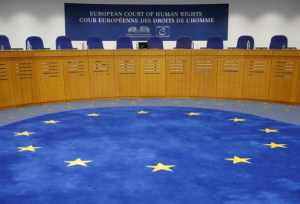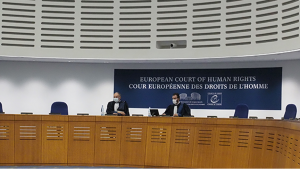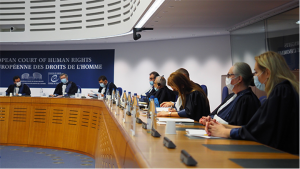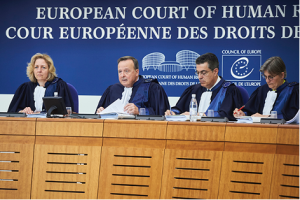By: Jamie McLennan
Impunity Watch Staff Writer
STRASBOURG, France – On October 20, 2020, the European Court of Human Rights (ECHR) unanimously held in B. v. Switzerland that a federal provision from Switzerland violated Article 14 (prohibition of discrimination) and Article 8 (right to respect for privacy and family life) when the Swiss Governmental provision allocated pensions differently to widows and widowers.

The applicant, B., is a Swiss national who is the father of two children. The applicant lost his wife in an accident when the children were two and four years old. The Swiss Federal Law on Old-Age and Survivors’ Insurance allowed widows and widowers to collect a pension if they were unable to work while caring for their children. However, the federal statute stated that widowers should be able to return to work when their children reached majority age and no longer needed assistance. In 2010, after the applicant’s youngest daughter turned the age of majority, the Compensation Office notified him that his pension was terminated. He lodged an appeal, which stated that the federal law violated gender equality as protected in the Swiss Constitution. The Cantonal Court dismissed his appeal and acknowledged that the federal statute purposely treated men and women differently when allocating monetary resources for the death of a spouse.
In November of 2012, the applicant filed suit with the ECHR. The suit alleged that the Swiss provision violated Articles 14 and 8, as the statute discriminated against widowed fathers, as compared to widowed mothers, with the sole responsibility of raising their children.
The Court found that the applicant’s complaint fell within the scope of protection for Articles 14 and 8. The purpose of Article 8 is to protect the privacy of matters within families. According to the Court, the applicant’s pension was to enable the surviving parent to control family matters as they pleased. Moreover, the applicant lost his pension at the age of 57 and it would be difficult to envision an older man being forced to rejoin the workforce so many years later. Correspondingly, the Court also affirmed the alleged gender discrimination because the applicant did experience unequal treatment in that his payments were terminated, whereas a widow would not have lost her pension. The Court rejected the Swiss Government’s justification for the difference in treatment on grounds of sex, as the Government argued that there were different roles and statuses between men and women when the legislation was enacted in 1948. In response, the Court reiterated that the Charter is a “living instrument,” which should be interpreted in light of present-day conditions and progressive changes in society.
The Court ordered that the Swiss Government pay the applicant 5,000 euros in respect for non-pecuniary damage and 6,380 euros in respect of costs and damages.
For further information, please see;
European Court of Human Rights- Fact Sheet- 20. Oct. 2020.
European Court of Human Rights- Forthcoming Judgements- 22. Oct. 2020.
European Court of Human Rights- Press Release- 20. Oct. 2020.



